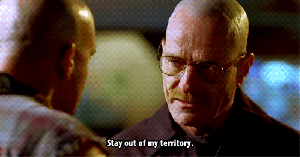- On economic efficiency, and what’s better, on learning more about coffee.
- I’d suggest a large mug of coffee and at least an hour to read this article. Take your time, and maybe read it more than once. If you are unfamiliar with the topic, pay attention to this excerpt, make sure you understand it, and read the whole thing again:
A distributor in a zero-sum competition for subscribers (like AT&T) has a vertical business model: ideally there should be services and content that are exclusive to the distributor, thus securing customers. Time Warner, though, is a content company, which means it has a horizontal business model: content is made once and then monetized across the broadest set of potential customers possible, taking advantage of content’s zero marginal cost.
- Every now and then, I think “the dismal science” to be an understatement. Today is one of those days. Yes, incentives matter. And sometimes, that turns out to be a really bad thing.
Yet, Trump’s behavior is easy to explain. If word gets out that children are forcibly taken from their parents, many will stop trying to get in.
Tyler Cowen adds points worth thinking about.
- We’re, um, behind the curve. To put it mildly.
- This story doesn’t have a happy ending. Can all clouds have a silver lining?
- A useful article to read about current fears in America about inflation. But also read this article to help you understand how one should think about inflation in general.
- Nobody builds better, more intuitive economic models than Paul Krugman, and what’s better, nobody translates models into understandable English as well as he does.
Category: Links
Links for 18th June, 2018
- This reminded me, in a way that made me very depressed about technology, of Adam Smith’s circles of sympathy. History, lessons? I don’t understand the words coming out of your mouth.
- This reminded me of this, and really made me want to get around to start reading this.
- On economies of scale. Speaking of which, this post (on a blog eminently worth following) reminded me that I should be buying this book. The other books also fascinated me – and the concluding sentence of the post is a sentiment I agree with wholeheartedly.
Oh for the days when one person could hope to range across all of existing scientific knowledge….
- On being a dad.
- So what do economists do, exactly?
- The unexpected leads to the unexpected.
- Paging Isaac Newton…
- An article from last year, but relevant for this month, about Angela Merkel
- Very old, but I read it just today, and simply had to share, because you might be in the same boat. Life in North Korea, for what it’s worth.
- Shah Rukh Khan as Christian Bale, and Ranbir Kapoor for Ryan Gosling, in our movie about our crisis. Only a suggestion, of course.
- History, UK, America and China. Operatic, almost.
- Demand, Supply and President Trump. Comic, almost.
Links for 16th June, 2018
- Harvard is elitist. Who’d have thunk it?
- Fairly obvious to understand, always difficult to implement.
- Maximize serendipity. By the way, the etymology of serendipity is a fun weekend read.
- Loyalty cards explained
Links for 15th June, 2018
- Via MR, on the changing landscape of the sex industry. And the porn industry. And how it’s increasingly the same thing. And how that’s a good thing.
- Currency markets are not a fun place to be right now. Adding fuel to the fire just became more expensive.
- Economic policy should be boring. Hear, hear.
- Here’s an example of an un-boring economic policy. And another one.
- On the need for a term money market.
- Backward integration on steroids
- Thinking beyond and because of the Singapore summit
- Behaviour and city planning
- Understanding Netflix
- A smidgen of hope
Links for 14th June, 2018
- However one should be aware of the role irrationally allocated capital has played in funding innovation and infrastructure, a function it usually performs with the state’s explicit support, as Bill Janeway and Marianna Mazzucato often point out. Indeed one should. (You’ll need to sign-up)
- First read this, and then read this. Is the glass half empty or half full? What is a glass?
- Formal education is a-sucks. Always.
- How do you solve a problem like Korea? (How do you measure the North Korean GDP, actually, but it was too tempting)
- This is important stuff (but not necessarily stuff you have to agree with entirely)
- The 19th century had the Wild West. We got cryptocurrencies.
- The Great (and often Baffling) game is afoot.
Links for 13th June, 2018
- Indian agriculture just ain’t the same anymore. Harish Damodaran explains why intervening in agricultural markets in India can do more harm than good. The article is also useful for checking your understanding of supply curves, their elasticity, and government procurement and government support price schemes.
- You could read the books recommended in your business strategy classes, or you could wonder why Nadal has done so well, and continues to do so well, at the French Open. The latter is a more interesting way to learn, and better not just for that one reason.
- Forecasts are useless. A truly useful heuristic, and one never taught at school
- It’s probably illegal to not post about the summit if you write a blog post today, and if I had to link to just one, let’s make it this one. You could file the entire post under “The world is grey, neither black nor white”. Filing it isn’t the same as not reading it!
- Forecasts are useless, yes, but predictions are not. That doesn’t make them correct – but they should provoke you to make your own predictions (and benefit from them)
- On free speech, and its importance.
- Real estate in America, crops in India, rentals in China. Plus ça change, plus c’est la même chose.
- For the title of the blog post alone.
- Military, ideology and worst (best) of all, institutions. Read a three part series about how China is exporting a lot more than firecrackers.
- Economics is always and everywhere a behavioral, the inequality edition.
Five things Udta Punjab teaches you about economics
First things first: if you haven’t seen the movie yet, you should really go this weekend. Really good performances all round, and Alia Bhatt in particular is in a not-to-be-missed role.
Now, you might think that Udta Punjab is about one thing, and one thing only.

But for folks like us, we couldn’t help but take a look at an alternate angle: economics!

Here are five ways in which you could try and claim that watching the movie was like learning economics in college.
- If you want to build a business empire, choosing a product that has massively inelastic demand really, really helps

Source: giphy - A high volume, high margin business necessarily involves a monopoly. Competition will likely be, well, eliminated.

Source: giphy - Politicians know. And they’ll want their cut. Money talks.*

Source: giphy - Truly effective reform of anything, anywhere can’t happen unless it begins from within. That applies to this movie, to people’s movements, or to countrywide reforms. Top down approaches tend to not work.

Source: giphy - And finally, you’d think people would have figured this out by now, but if it needs to be said, we’ll say it:
suppressingcensorship never works.
Source: giphy
*Yeah, ok, you didn’t need to watch this movie to know that.
